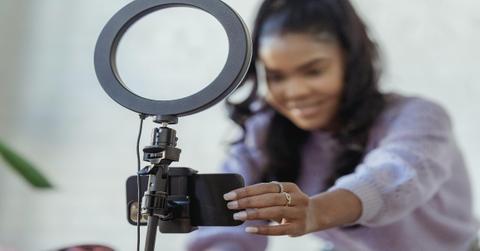How Much Authenticity Is Too Much on Social Media?

The traditional corporate survival tactics are seemingly cracking. The stiff headshots and robotic posts are giving way to raw confessions about burnout, honest job search struggles, and vulnerable takes on career pivots. This shift toward social media authenticity is more than a trend — it’s a fundamental change in how professionals build trust in the digital age.
For women professionals and entrepreneurs, this “social media authenticity” can be a double-edged sword. When done right, vulnerability is a superpower that builds genuine community. When executed poorly, it can potentially impact professional credibility.The question is: Where do we draw the line?
Why Does Vulnerability Work — Sometimes?
The move toward vulnerability is largely fueled by a desire for connection. In a world saturated with hyper-polished highlight reels, shared struggle and relatability are the new currencies. Professionals who disclose struggles, such as enduring a recent layoff, navigating career pivots, or admitting to burnout, offer several critical advantages.

To begin, it builds trust with your audience. Sharing a struggle proves you are human, making you instantly more relatable than a figure who appears effortlessly perfect. This honesty fosters deep trust, which is the bedrock of client and team relationships.
Additionally, vulnerability can create community. When a woman shares her experience with imposter syndrome or a major career setback, she validates the feelings of thousands of others. This community support can lead directly to networking opportunities, referrals, and professional advocacy.
It also demonstrates resilience. Detailing a setback and the strategic actions you took to overcome it is far more compelling than simply listing a promotion. It showcases grit, problem-solving, and emotional intelligence —traits employers highly value.
The Risk of Oversharing
While transparency is encouraged, social media authenticity must be managed and regulated. The moment an audience senses your vulnerability, it can be perceived as oversharing. The content can then backfire, particularly for women who often face harsher judgments regarding professionalism.
Oversharing may be okay when hanging out with your girlfriends. However, professionally, this typically involves publicly venting about a former employer, criticizing a colleague, or posting unfiltered emotional crises without an accompanying lesson or professional conclusion. This can signal poor judgment, lack of boundaries, and an inability to handle conflict privately.

The trap of oversharing is easy to fall into, as women often feel immense pressure to “be real,” yet must maintain crucial professional boundaries and privacy.
While sharing the fact of a layoff builds community, detailing the toxic specifics of a former workplace or sharing excessive personal drama can make you seem like a “whistleblower,” causing future employers to be hesitant to hire.
Many women fall into the second trap of performing vulnerability, especially after their previous posts involving raw honesty succeed. They feel they must constantly generate this “vulnerability” content to maintain engagement, leading to a new form of digital burnout centered on emotional labor, something women are already too familiar with.
Navigating Social Media Authenticity
The secret to successful social media authenticity lies in the intent and the frame. Here are three tips to keep in mind when sharing professional content:
- Frame it as a Lesson: When sharing a struggle (a career pivot, a failed pitch, a layoff), frame the content as a lesson learned. For example, instead of “My old boss was terrible,” pivot to “Here is the strategic way I rebuilt my network after my last position.”
- Maintain a Boundary: Focus on the system or the strategy, not the specific people or personal crisis details. Your struggles are valid, but your audience is engaging with you as a professional.
- Choose Your Platform Wisely: Professionals must be strategic about where they are vulnerable. A personal reflection on a niche professional challenge might work well on LinkedIn, while deeply intimate emotional struggles are usually better suited for private communities or a personal journal.
Ultimately, authenticity on social media is a strategic tool, not an obligation. For women professionals, it’s about leading with confidence, sharing the strategy of the struggle, and always ensuring the takeaway reinforces their resilience and professional judgment.






